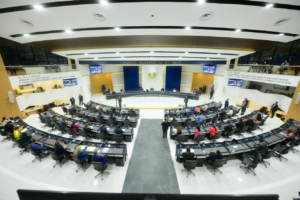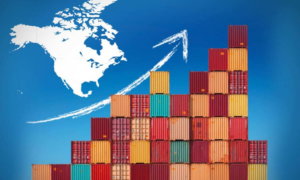The World Trade Organization (WTO) issued a strong warning about the economic consequences of the growing trade war between the United States and China, stating that the tension between the two powers could lead to a contraction of up to 80% in their bilateral trade. This deterioration represents a serious risk for the global economic balance, given that both economies together account for around 3% of world trade.

According to the WTO, the retaliatory trade strategy between the world’s two largest economies will not only impact their bilateral relations, but also poses systemic threats to global economic growth. The organization’s latest assessments point to a scenario of growing uncertainty with potentially devastating effects, especially if the escalation continues without effective diplomatic intervention.
One of the WTO’s greatest fears is the possible fragmentation of global trade into geopolitical blocs, which could significantly erode international economic efficiency. In a scenario of trade polarization, global real GDP could be reduced by up to 7% in the long term, which would particularly affect emerging economies and developing countries.

In addition, trade detour – when trade flows are artificially redirected to avoid tariffs – represents an immediate threat to global economic stability. This dynamic distorts markets and impairs the efficient allocation of resources, generating losses for both exporters and consumers.
Against this backdrop, the WTO made an urgent appeal to all its members to strengthen multilateral cooperation. The organization insisted on the need to find joint solutions through dialogue, thus preventing trade tensions from escalating into a prolonged crisis that would further weaken the global economy.

The WTO reiterated that preserving an open, predictable, and rules-based trading system is essential for sustainable development. In this regard, it reaffirmed its role as the central platform for negotiating and resolving trade disputes, stressing that only through a coordinated global response can a setback in global economic integration be avoided.







